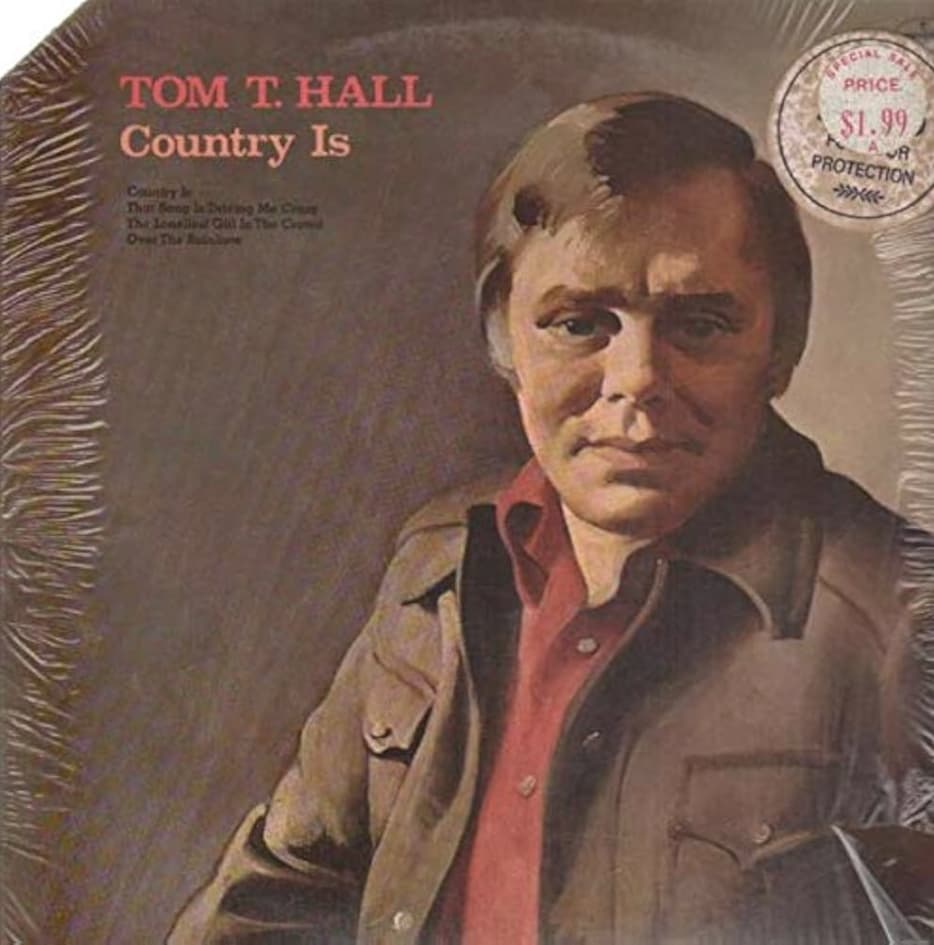
A Simpler Time, A Profound Truth: “Country Is” Defines a Genre’s Soul
Ah, those were the days, weren’t they? When a song could hit you right in the gut with its honesty, when a melody could transport you back to a front porch swing, or a dusty gravel road. And few artists, my friends, had that uncanny knack for storytelling quite like Tom T. Hall. He wasn’t just a singer; he was the “Storyteller,” and with good reason. Today, we’re going to pull a classic from the vinyl collection, dust it off, and truly appreciate a track that, for many of us, became a defining anthem of its time: “Country Is.” Released in 1974, this gem didn’t just climb the charts; it owned them, reaching the coveted number one spot on the Billboard Hot Country Singles chart. For weeks, it held court, a testament to its immediate resonance with listeners yearning for authenticity in an increasingly complex world. It was the lead single from his equally iconic album, also titled “Country Is,” a record that further solidified Hall’s reputation as a master craftsman of song.
Now, let’s talk about the magic behind this particular tune. Tom T. Hall had a way of distilling grand concepts into simple, relatable truths, and “Country Is” is a prime example of his genius. The story goes that Hall was often asked to define “country music” or even “country life” itself. He found himself struggling with academic definitions, the kind you might find in a dictionary or a music theory textbook. He realized that “country” wasn’t something you could easily categorize or put into a neat little box. It wasn’t just a sound; it was a feeling, a way of life, a collection of experiences. It was the smell of freshly cut hay, the quiet solitude of a fishing hole, the unwavering loyalty of a good dog, the simple comfort of a familiar face. He decided to answer the question not with a definition, but with a series of vivid images, a tapestry woven from the threads of everyday life in rural America. He once recounted how the song essentially wrote itself, flowing out of him as he pondered what “country” truly meant to him, and to the people he knew. It wasn’t about flashy guitars or complicated arrangements; it was about the heart of the matter, the simple, profound realities that shaped the lives of so many.
The meaning of “Country Is” is deceptively profound in its simplicity. It’s a gentle yet firm rejection of urban sophistication and a loving embrace of a more elemental existence. Hall doesn’t preach; he paints. He shows us that country isn’t about grand gestures or material wealth, but about the small, often overlooked moments that give life its texture and meaning. “Country is a color, blue and gray,” he sings, immediately setting a tone of grounded authenticity. He speaks of “old shoes,” “a good dog,” “a fiddle tune,” “homemade wine,” and “a friend who’s always there.” These aren’t just random images; they are pillars of a specific worldview, one rooted in community, tradition, hard work, and an appreciation for the simple pleasures. For many of us who grew up with these experiences, or who simply longed for them, the song was a balm to the soul, a reminder of what truly matters. It evoked memories of simpler times, perhaps of grandparents’ farms, of summer nights spent under starry skies, of neighbors helping neighbors, of a pace of life that felt more human, more connected. It was a song that didn’t just tell you what country was; it made you feel it, deep down in your bones, in that part of you that remembers the scent of damp earth after a rain, or the distant cry of a whippoorwill at dusk. It was, and remains, a beautiful, poignant reflection on the enduring spirit of rural America, a spirit that continues to resonate with generations who understand that true richness lies not in possessions, but in connections, in memories, and in the quiet strength of a life well-lived. As we listen to it again, let us not just hear the words, but feel the echoes of our own pasts, and appreciate the timeless wisdom of Tom T. Hall, the man who truly understood that sometimes, the most profound truths are found in the simplest of expressions.